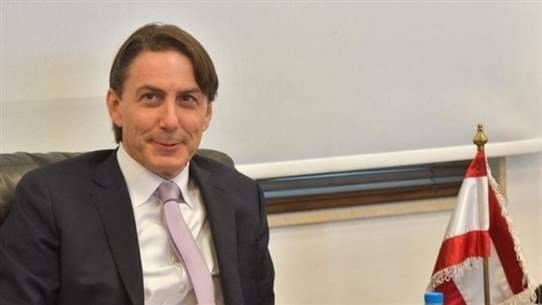A new round of negotiations was completed with the visit of US envoy Amos Hochstein to Lebanon, during which he discussed recent developments and Israeli proposals with concerned parties. He later indicated that progress has been made in this context, without revealing any details of the discussions or achieved points. Sources following the file noted that "the level of optimism seemed to be waning compared to the last visit, when there were indications of reaching an agreement within a few weeks." They indicated through "Anbaa" electronic news that "the positive atmosphere back then was likely related to the easing of tensions regarding the nuclear agreement between the United States and Iran, and the current hesitation might be due to a decrease in the momentum of the indirect negotiations between the parties, especially since the file is closely related to a settlement that includes the entire region, with Iran being a part of it due to its influence."
The presence of General Security Director Major General Abbas Ibrahim was notable in the meetings held with the American envoy, after the army was previously excluded from the negotiation process, which was limited to the three presidents and the Deputy Prime Minister. What are the implications of this new participation? International relations professor Khaled Al-Azzi noted that "the information available about the negotiations so far talks about Israel agreeing to grant Lebanon the Qana field in exchange for the Karish field, but what has emerged on the subject is the declaration of Energyan Company stopping the search in the Karish reservoir due to security tensions."
In a conversation with "Anbaa" electronic newspaper, Al-Azzi highlighted the expansion of the negotiations and Major General Ibrahim's involvement in the discussions, and questioned: "Is there preparation for a visit to Qatar to discuss the file after it has entered the negotiations alongside the United States?" He recalled in this context the question by Progressive Socialist Party leader Walid Jumblatt regarding external influences on this file and asked: "Are the negotiations related only to Lebanon, or who is negotiating, Lebanon or Iran?" He pointed out that "the file is directly linked to the nuclear agreement, which is also postponed until after the midterm elections in the United States," considering that "the border demarcation negotiations will be very long, and here it is essential to unify the Lebanese negotiators and adopt a national strategy during the talks,” expressing concern "that the file may be delayed significantly, causing gas to lose its value, rendering its extraction costlier than its yield for Lebanon, with the latter potentially losing its wealth."
Regarding the agreement on a single negotiator for Lebanon, regardless of identity, and a national strategy for the negotiations, Al-Azzi hinted at Hezbollah's interference in the file through its drones that reached the Karish field, noting that "the party reached areas that Lebanon does not recognize as under Lebanese sovereignty since the president has not signed Decree 6433 to send it to the UN, which is the decree that expands Lebanon's maritime area, raising additional questions about all of that."
On the European need for gas and the possibility that it may expedite negotiations to finalize the file, Al-Azzi mentioned that "Israeli gas is liquefied and needs to be reprocessed, thus Europe will not benefit directly from it, and these alternatives will not provide actual cover for European market needs. Rather, they are seeking other solutions, reflected in France's announcement regarding potential nuclear plants it may use for electricity generation."




